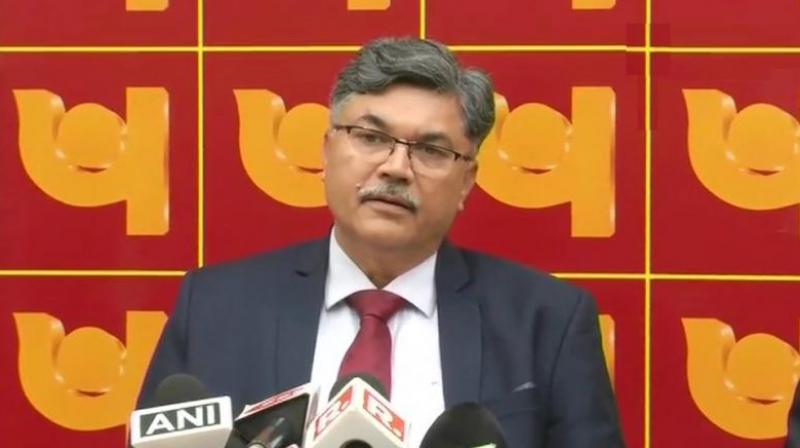PNB says internal probe into USD 2 billion fraud ongoing
In March, PNB agreed to pay 65 billion rupees ($996 million) to counterparty banks.

New Delhi: India’s state-run Punjab National Bank (PNB) is conducting an internal investigation into an alleged $2 billion fraud and more heads could roll, its chief executive said in an interview on Wednesday.
The country’s second-biggest state lender disclosed in February that companies owned by two jewellers defrauded it by raising credit from overseas branches of other Indian banks, using illegal guarantees issued by rogue staff at a Mumbai PNB branch over several years.
Indian authorities have arrested 20 people, and a court has issued non-bailable warrants against jewellers Nirav Modi and his uncle Mehul Choksi. The duo have denied the allegations against them, and authorities say they both left the country before the fraud was uncovered.
“We are examining every aspect of it, and if we find others involved we will not spare them,” said PNB CEO Sunil Mehta, in his first interview with a foreign news outlet since the fraud was uncovered.
PNB has so far suspended 21 officials and Mehta said the bank was carrying out an investigation to find out how the fraud - the biggest in Indian banking history - went unnoticed for more than half a decade.
Several experts have also questioned the failure of external auditors approved by India’s central bank - known as statutory auditors - to detect the illegalities. These firms often only do top line reviews, not in-depth inspections.
“I don’t blame them. They come only for a short period of time and they go and basically see data only on the CBS,” said Mehta, referring to PNB’s core banking software.
PNB has said the rogue bankers hid the fraud by issuing the guarantees via the SWIFT interbank messaging system, while not entering corresponding entries in the CBS.
The bank will soon finish integrating its CBS with SWIFT so this cannot happen again, Mehta said.
The banking regulator, the Reserve Bank of India, which has directed all banks to ensure this fix is implemented before the end of April, has not done any specific audit of PNB since the incident, Mehta said.
Tighter rules
Mehta, who took over as PNB CEO last May, said the bank was adding more checks to prevent a handful of employees from carrying out a similar fraud. That would also mean centralising some tasks and cutting branches’ powers to approve credit.
“Earlier we were dependent mainly on physical inspection of the branches. Now we’re going to create an offline monitoring cell. Besides the physical inspection we will also monitor all exceptional transactions,” he said, flanked by a team of media advisers in his spacious office.
PNB will route all its foreign exchange transactions through its back office at its New Delhi headquarters. Branches on their own will not be allowed to both receive and approve credit requests.
Reuters reported last month that PNB had stepped up controls on the use of SWIFT, allowing only senior staff to use the platform, and taking away the authority of clerks to do so.
Mehta said PNB grew its domestic deposits by 6.2 percent in the year ended March 31. Domestic credit grew by 10 percent, a figure he expects the bank will be able to replicate in the current fiscal year.
He declined to reveal any other financial figures for the January-March quarter, which could take a hit due to a hefty provision. The central bank has allowed PNB to spread the losses over four quarters, Mehta said.
In March, PNB agreed to pay 65 billion rupees ($996 million) to counterparty banks. It added it would assume any subsequent liability from the fraud, to prevent disruptions in the banking sector.
“We have the capacity and the capability to bear the loss.” he said, adding that privatisation of public sector banks was not the answer to the current crisis.

